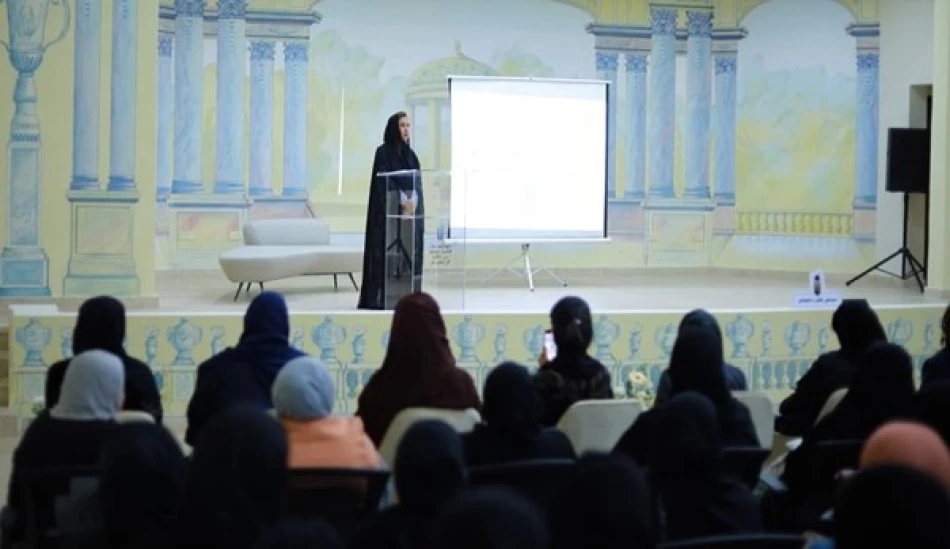
Shama Al Nahyan: Civic Philanthropy - A Humanitarian Mission and National Responsibility
UAE Royal Leader Redefines Social Work as National Strategy, Not Charity
Dr. Sheikha Shama bint Mohammed bin Khalid Al Nahyan, recently honored by the Gulf Cooperation Council as the UAE's leading figure in civil social work, is positioning community service as a cornerstone of national security and economic development. Her recognition signals the UAE's systematic approach to transforming volunteerism from traditional charity into a strategic tool for social cohesion and national competitiveness.
Social Work as National Security Infrastructure
Speaking to UAE News Agency following her GCC recognition, Dr. Sheikha Shama emphasized that civil social work directly contributes to social security by strengthening community bonds and fostering cultural integration among the UAE's diverse population. This perspective aligns with the UAE's broader strategy of leveraging soft power and social stability as competitive advantages in an increasingly volatile region.
Her approach reflects a sophisticated understanding of how social programs can serve multiple strategic objectives: youth development, cultural preservation, and national identity formation. The Sheikh Mohammed bin Khalid Al Nahyan Cultural and Educational Institutions, which she chairs, operates programs spanning environmental education, mobile libraries, and knowledge councils—all designed to reinforce national priorities while addressing community needs.
Strategic Challenges and Digital Solutions
Overcoming Traditional Limitations
Dr. Sheikha Shama identified two critical challenges facing modern social work: reaching targeted demographics and ensuring long-term program sustainability. Her solution involves strategic partnerships between government and private institutions, coupled with continuous skills development for social workers.
This approach mirrors successful models in Singapore and South Korea, where governments have systematically professionalized social work to maximize impact and efficiency. The UAE's emphasis on digital transformation provides additional leverage, enabling programs to reach broader audiences while reducing operational costs.
Technology as Force Multiplier
The integration of digital platforms represents a significant evolution in Gulf social work. Unlike traditional charity models that rely on personal networks and seasonal giving, the UAE's tech-enabled approach allows for data-driven program design, real-time impact measurement, and scalable delivery mechanisms.
Economic and Political Implications
Dr. Sheikha Shama's recognition comes at a time when Gulf states are diversifying their economies and reducing dependence on oil revenues. Social programs that enhance human capital development, cultural integration, and youth engagement directly support these economic transformation goals.
Her emphasis on aligning community initiatives with national strategic plans suggests the UAE views social work as infrastructure investment rather than welfare spending. This perspective positions social programs as contributors to economic competitiveness, particularly in knowledge-based industries where social cohesion and cultural adaptability provide competitive advantages.
Regional Leadership and Future Trajectory
The GCC's recognition of Dr. Sheikha Shama's work signals broader regional interest in professionalizing social development. As Gulf states face similar challenges—youth engagement, cultural preservation amid globalization, and economic diversification—the UAE's systematic approach offers a replicable model.
Her prediction that civil work will become "more impactful in coming years" appears well-founded, given increasing government support and growing public awareness. The UAE's investment in social infrastructure, backed by leadership commitment and technological capabilities, positions the country to leverage social programs as tools of both domestic stability and regional influence.
This strategic approach to social work—treating it as national infrastructure rather than charitable activity—may become the standard model for Gulf states seeking to balance rapid modernization with social cohesion and cultural identity preservation.
Most Viewed News

 Layla Al Mansoori
Layla Al Mansoori






